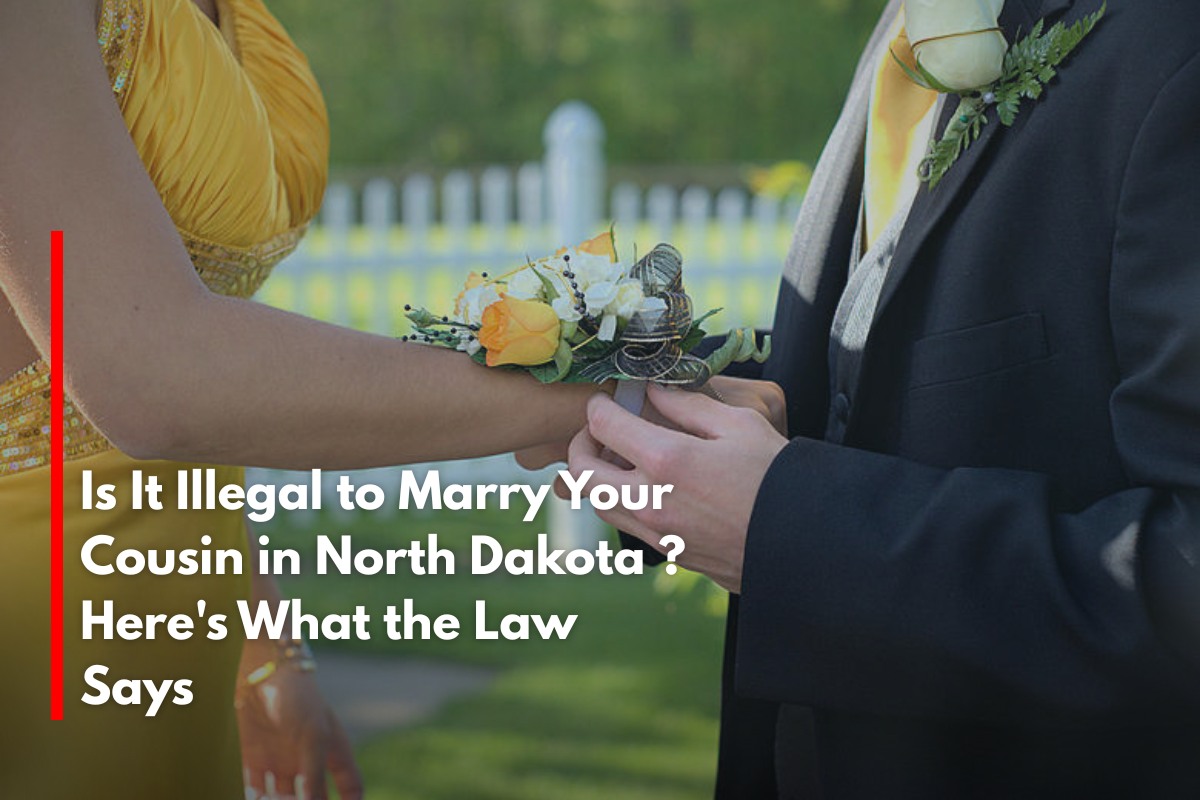Marriage laws in the United States vary widely by state, especially when it comes to cousin marriage. In North Dakota, marrying a cousin is explicitly regulated by law, with particular restrictions designed to address genetic concerns and societal norms. Here’s a detailed look at what North Dakota law says about cousin marriage in 2025, including who can and cannot legally marry within family relations.
North Dakota’s Ban on First Cousin Marriage
North Dakota strictly prohibits marriage between first cousins. This ban includes both “whole blood” cousins (sharing both parents in their respective families) and “half blood” cousins (sharing one parent), according to the state’s marriage statutes. The law declares marriage between first cousins illegal and void due to concerns about consanguinity and potential genetic risks for any offspring.
This means:
First cousins cannot legally marry in North Dakota under any circumstances.
Sexual relations or cohabitation between first cousins may also be prohibited.
The state does not recognize first cousin marriages legally performed in other states that allow such unions.
Who Can Marry Within the Family?
North Dakota law allows marriages between relatives who are more distantly related than first cousins:
First cousins once removed (e.g., your first cousin’s children) are legally permitted to marry.
Second cousins, third cousins, and more distant relatives can also marry legally.
This distinction reflects carefully considered genetic and legal boundaries intended to balance personal freedom and public health considerations.
What Happens if First Cousins Marry Out of State?
Some states may recognize cousin marriages performed legally elsewhere. However, North Dakota has a firm stance:
Marriage Application and Enforcement
In practical terms, when applying for a marriage license in North Dakota:
Applicants must disclose if they are related, and officials can request clarification on the degree of relation.
Marriage officials are required to deny a marriage license application if the couple are first cousins.
Comparison to Neighboring States
North Dakota’s prohibitive stance is consistent with neighboring states such as:
South Dakota
Minnesota
Montana
None of these states allow first cousin marriages either, making the upper Midwest largely restrictive on this point of marriage law.
Legal and Social Context
The reasons behind banning first cousin marriages often include:
Concerns over genetic risks to children due to close blood relations.
Longstanding cultural and social norms that discourage close-relative marriages.
However, the laws do allow for considerable freedom among more distant relatives.
Marrying your first cousin in North Dakota is illegal, with no exceptions under the current law. The state’s legal framework forbids such unions due to consanguinity concerns and does not recognize cousin marriages from other states. While cousins more distantly related than first cousins can marry in North Dakota, those closer in relation face legal barriers that include denial of marriage licenses and non-recognition of out-of-state marriages.
Understanding these laws is critical for North Dakota residents considering marriage within their families. For detailed personal guidance, consulting a family law attorney in North Dakota is advisable.
Sources
(https://en.wikipedia.org/wiki/Cousin_marriage_law_in_the_United_States)
(https://us1033.com/kissing-cousins-in-north-dakota-unveiling-marriage-laws/)
(https://en.wikipedia.org/wiki/Cousin_marriage)
(https://www.legalmatch.com/law-library/article/cousin-marriage-laws.html)
(https://dataminingdna.com/can-first-cousins-marry-in-north-dakota/)











